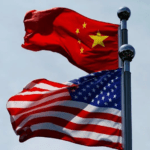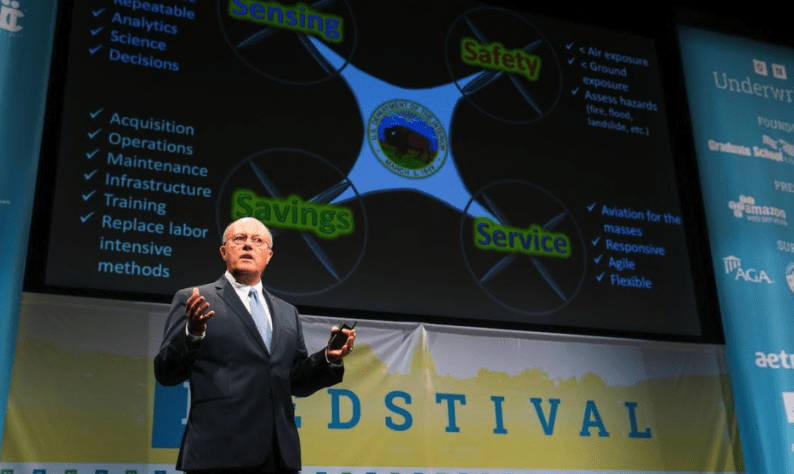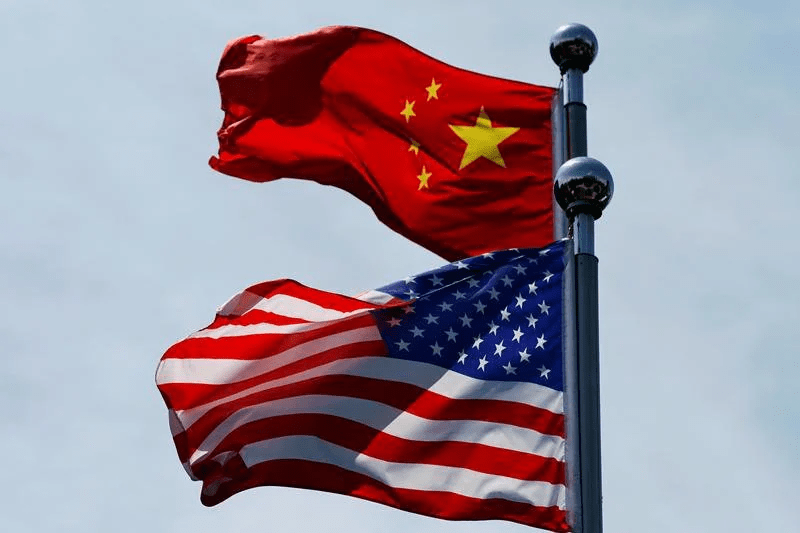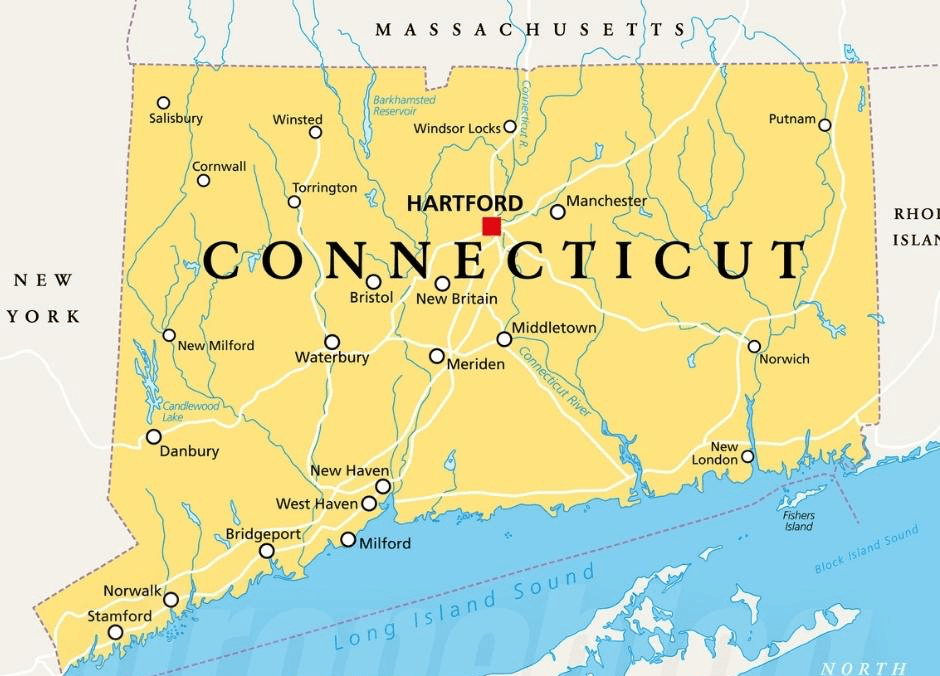
Making things clearer – Explaining Drone Regulations & Fleet Replacement
- I’m getting confusing and conflicting information about drones in my department, HELP!
- We have Chinese drones in our department. Do we need new ones? When? Can someone clear this up?
- What does all this legislation mean, and what am I required to do?
- What is NDAA Compliant?
- What is American Made?
As the ban on the use of drones manufactured in China and a list of “Covered Countries” becomes broader and deeper, public agencies and private contractors need to prepare to act. The absence of a unified set of guidelines to comply with Federal and State laws, rules and statutes has left Police Chiefs, Sheriffs, Fire Chiefs and other public agencies confused and poorly informed as to the action they must take to keep their drone fleets aloft.
NDAA Confusion
Often, guidance consists of misinformation, outdated memos and persistent rumors Terms like ‘NDAA Compliant’, and ‘American Made’ proliferate on websites, industry blogs, police newsletters and trade publications. Outright distortions such as the term “NDAA 2020 Compliant” are found in advertising and on drone manufacturer websites. (What does NDAA 2020 Compliant mean? It was compliant in 2020, and while that’s good, it isn’t compliant anymore.) Drone industry review sites are often biased, with an agenda to distort laws banning Chinese manufacturers as onerous, costly and unfair.
Blue UAS Certified Confusion
No one is actually asking for small or even large non-military agencies to comply with Department of Defense standards. Another misconception (and often-used sales misdirection in the drone industry today) is the term “Blue UAS Certified”. Blue UAS is a standard above and beyond any other compliance certification. It applies to drones purchased by the military, as it relates to standards of encryption for classified and National Defense applications. Likewise, the term “Military Grade” is used by some compliant and non-compliant manufacturers.
The military also has other physical requirements for endurance and performance on the battlefield, which, in concert with Blue UAS standards, escalates the cost far beyond that required for the rest of our important services including law enforcement, firefighting and transportation and agricultural agencies and departments.
What happened to DJI?
My department uses DJI and other Chinese drones. Do I need to replace them? This is really confusing, and we can’t afford it!
In response to concerns regarding national security, the push by the US government to ban the procurement and use of drones made in China (and other Covered Countries) has resulted in increasingly restrictive legislation starting in 2017 and continuing until today. In an ever-tightening noose around the neck of drones produced by Dajiang Innovation Corporation, d/b/a “DJI”, the world’s largest manufacturer of drones. There are, of course, other manufacturers involved, but because of DJI’s 70%+ share of the U.S. market, DJI is often used as the poster child of “banned drone laws”.
NDAA Compliance vs The Drone Act of 2024
In December of 2023 President Biden enacted the National Defense Authorization Act (NDAA) of 2024, incorporating the American Security Drone Act (ASDA) of 2023 within its rules. It was a clear bi-partisan win with general agreement on acting quickly to preserve our cyber security when it comes to drones and radio controlled unmanned robots across the board.
The NDAA bars government agencies from purchasing or employing drones or critical components originating from certain “covered” countries deemed adversarial to the U.S., including China. Additionally, the legislation prohibits the utilization of federal grants by state and local government bodies for acquiring such products.
Read carefully, those tentacles run deep!
Formerly, it was mostly the DoD affected on a practical basis. Now, the term Government Agencies spreads the law to virtually all departments along with anyone they fund through subsidies, grants, or any manner at all. Are you a police department? Fire, EMT, or other state or locally-funded department? Follow the money.
There is no state or local agency that is not downstream of Federal Funding. Even the contractors you hire must comply. And while that may not feel like good news for commercial contractors who map and survey and regularly serve government customers. To avoid losing funding upstream, everyone downstream must also comply.
Attention Chiefs, Sheriffs, Commissioners, Secretaries and Department Heads: This is about you and your departments: The 2024 NDAA allows a 2-year runway for states to implement NDAA compliance, but your state may have its own requirements now. In any event, every Chinese made drone you have in the air must be grounded before the 2-year deadline. So we recommend that replacing your non-compliant fleet should really be on today’s agenda.
A more extensive prohibition, specifically targeting DJI, is under consideration in the Countering CCP Drones Act, presently awaiting approval in Congress. If enacted, this bill would enlist DJI among the companies restricted from accessing any FCC-regulated communication network. Such legislation could impact all users of DJI products, spanning public service, commercial, or consumer sectors. Even hobbyists with drones above 249 grams in weight need to keep an eye on this.
So, I’ve got 2 years to deal with this?
Not if you are in Florida, and soon, too, in many other states that are passing their own drone bans.
Florida has the toughest drone law in the Country. Modeled directly after the 2021 Presidential Order 13981, it covers drones down to the critical components inside. It is in effect now, and covers every entity, contractor, agency, and grant recipient of State of Florida funds. The good news is that Florida set aside a $25 million dollar grant fund for the Florida Department of Law Enforcement to help offset the costs of replacing the State’s 400 law enforcement agencies drones.

Don’t we have a “list” in Florida, and almost no one on the list can deliver what we need, and those on the list that can deliver charge 3x the price of the DJI we bought at Walmart??
There is no longer a list to comply with. The “list” was retired and archived in April of 2003. The list was replaced in April of 2023 by Florida Administrative Code (FAC) 60GG-2.0075 which gives the specific requirements for compliance with Florida Law. Our company, CSpace Robotics, builds Florida Compliant drones right here in Florida. We are a bit more expensive than what you are replacing, but we certainly don’t share your data, location, operations or images with China. We also service and support our drones right here on the Space Coast of Florida with local Floridian labor. No support calls are ever routed to an offshore call center. We are proudly made in America by American hands using American Components.
Is the China threat real?
Yes, it is a real threat.
Since drones are increasingly incorporated into every facet of public safety, our police, firefighting, infrastructure, and agriculture are all mission critical and must be cyber secure. The systems they work in save the lives of front line first responders and are important public safety tools. They even make agriculture and farming more cost effective, safe, and secure.
The country-of-origin restrictions are necessary to prevent drones manufactured in China from transmitting sensitive data related to critical U.S. infrastructure, vast amounts of vital information, back to China without our knowledge or permission. Under the laws of China, such data is susceptible to being surrendered to the Chinese government or the Chinese Communist Party (CCP) by the manufacturers like DJI. Your DJI drone fleet could be used to survey your operations and procedures.
“This is not a hypothetical threat. We’ve witnessed instances of these drones leaking data abroad, and it’s reassuring to see government agencies acknowledge this known risk,” remarked Brian Harrell, former assistant secretary of the U.S. Department of Homeland Security. “The U.S. government has unequivocally identified Chinese-made drones as a security threat, given China’s dominance in the electronics supply chain, including drones, which undermines U.S. national security interests.”


 Explaining New Drone Regs
Explaining New Drone Regs  The ADSA & Your Department Drones
The ADSA & Your Department Drones  Timeline On Drone Bans
Timeline On Drone Bans  Breaking News for Connecticut Drone Fleets
Breaking News for Connecticut Drone Fleets  The Near Future of Drone Surveillance & Security
The Near Future of Drone Surveillance & Security 

